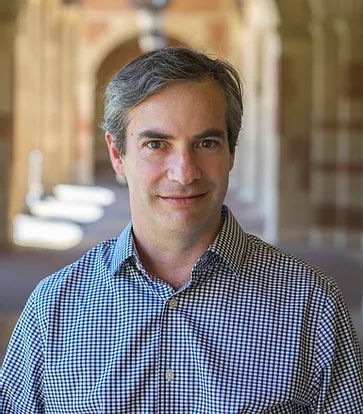Counter Memory Activism is an interdisciplinary research-creation project between artists, museologists, curators and scholars of genocide and memory studies, exploring the current questions and historical context of memory activism, as well as broader themes such as collective memory and the commemoration of heritage and difficult histories. As part of the ongoing Counter Memory Activism Speaker Series, Dr. Michael Rothberg gave a talk on March 18 regarding his theory of the “implicated subject.” Rothberg is a professor of English and Comparative Literature at the University of California, Los Angeles (UCLA), however his most recent work addresses political responsibility, entangled legacies of violence, and comparative genocide. Most notably, he takes up Marianne Hirsch’s concept of “postmemory,” and Hannah Arendt’s writing on collective and personal responsibility to confront complex implication in historical and contemporary injustice.
 Rothberg’s recently published book The Implicated Subject: Beyond Victims and Perpetrators, challenges the categories of perpetrator, victim, and bystander, and proposes a new understanding of implication as a multidirectional position in relation to injustice, as opposed to a static identity. As outlined in his talk, Rothberg describes implication as either “diachronic,” which refers to the perpetrators’ successors, or bystanders who continue to benefit from historical legacies of inequality or violence, or as “synchronic,” which can be applied to enablers and “perpetuators” of these instances in the present. However, these categories are not mutually exclusive; instead, individuals may occupy multiple positions of implication in relation to multiple conflicts. Rothberg explained, for example, how as a white Jewish American he finds himself “complexly implicated”: through postmemory and intergenerational trauma he is connected to the Holocaust, but as a person of Jewish faith he is also synchronically implicated in the perpetuation of the Palestinian occupation, and finally as a white American he is also diachronically implicated in slavery and synchronically implicated in ongoing racial injustice.
Rothberg’s recently published book The Implicated Subject: Beyond Victims and Perpetrators, challenges the categories of perpetrator, victim, and bystander, and proposes a new understanding of implication as a multidirectional position in relation to injustice, as opposed to a static identity. As outlined in his talk, Rothberg describes implication as either “diachronic,” which refers to the perpetrators’ successors, or bystanders who continue to benefit from historical legacies of inequality or violence, or as “synchronic,” which can be applied to enablers and “perpetuators” of these instances in the present. However, these categories are not mutually exclusive; instead, individuals may occupy multiple positions of implication in relation to multiple conflicts. Rothberg explained, for example, how as a white Jewish American he finds himself “complexly implicated”: through postmemory and intergenerational trauma he is connected to the Holocaust, but as a person of Jewish faith he is also synchronically implicated in the perpetuation of the Palestinian occupation, and finally as a white American he is also diachronically implicated in slavery and synchronically implicated in ongoing racial injustice.
Following his lecture, students and scholars challenged Rothberg’s theory of implication through the Zoom chat. Rothberg’s work is especially relevant right now, as our world continues to be plagued with conflicts that implicate many but offer no definitive perpetrator, described in The Implicated Subject as including “political violence, economic exploitation, and ecological devastation.” Some attendees expressed concern about the vagueness or broadness of Rothberg’s terminology, asserting with Hannah Arendt that if everyone is guilty, no one is. But Rothberg readily acknowledged the limitations of his work. His book explores an analytical category for instances of violence and seeks to broaden our understanding of the actors participating in injustice, but it is ill-equipped to address moral responsibility.
Ultimately, Rothberg argues that even if we are all guilty our implication is not meaningless; rather, we must recognize our role in injustice and forge solidarity with victims through directly confronting that which he characterizes in The Implicated Subject as “socially sanctioned denial and ignorance and conscious and unconscious investments in privilege and hierarchy.”
Katie Lawrence is a fourth-year European Studies student.

